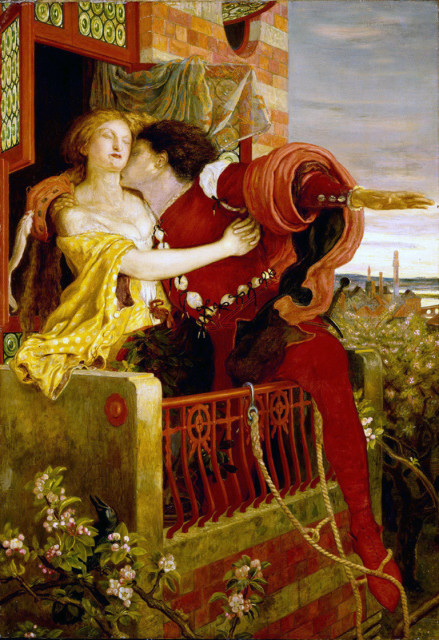2017-11-02 【Aiden in English】 Dear Mom,
Throughout history, specific individuals have left a lasting imprint on society. Steve Jobs revolutionized futuristic technology with mobile phones. Thomas Edison enlightened society with his mastery of light and electricity. Karl Benz drove the world into the age of automobiles with his incredible strength. However, among this list is William Shakespeare, a man who innovated with abstract concepts in his works. As others have mentioned, his work did not physically change society, but his influence endures as long and deep as the English language. Born in 1564, Shakespeare entered the booming Renaissance. The period presented new ideas and visions of culture. Shakespeare'se. Shakespeare's work was altered. For example, Shakespeare's childhood was spent learning Latin and its history. He was first introduced to performance here, and the short skirts at school motivated him to write. As shown in numerous references to Roman mythology and deities, his work reflected much of the prevailing literary tastes of the time. Of the thirty-seven plays he would write over his lifetime, standouts such as Romeo and Juliet mark the standards of entertainment today. Written in 1594, it isn't easy to understand how a work of writing can sustain its relevance today. Although the playwrights' society's rights effects show Shakespeare's fantastic legacy, the name Shakespeare has for himself. Shakespeare's great metaphors are not limited to abstract, complex ideas and processes which defy common stereotypes, during an opening" g monologueday's scene by Titan's "From forth day's path and Titan's fiery wheels. Now, er" the sun advances his burning eye" Shakespeare's iii), an example of Shakespeare's poetic yet straightforward metaphors, relates Friar to Titan's chariot. In the Friar's monologue context, this metaphor symbolizes the sun rising in the morning, bringing light to a previously dark canvas. In Roman culture, Titan is the equivalent of Helios, the Greek sun god, and rides the sun across the sky daily. Its usage here represents the marking of time, as Shakespeare had to find a unique way to explain the passage of time without resorting to blatant narration. Therefore, a metaphor slipped into dialogue, perfectly disguised, yet informed the audience of the current time. Furthermore, the metaphor occurs during the introduction of the Friar, a new character. His entrance into the plot also reveals foresight within the same passage. "In plants, herbs, stones, and their true qualities...Nor aught so goo" but, strained from that fair use" can be interpreted as poisoning, which is also the way Romeo and Juliet take their lives. The metaphor sets a sombre tone for the passage, preparing the audience for a significant revelation that resolves the rivalry between the Montagues and the Capulets. Although the world has built up anticipation around this site, I feel disappointed. Whether it's because we are reading at a slow pace or because of the enormous expectations we were given, I do not think Romeo and Juliet have impressed my standards. I do not enjoy the brief descriptions and quick scenes that should be much more exaggerated, such as the marriage between Romeo and Juliet. However, I understand Shakespeare's time constraints, but occasionally, a monologue here or there, particularly by the nurse or Juliet, extends way too long. If it were time that would constrain Shakespeare, I wish he spent it characterizing another person, perhaps even another scene. His writing must've shown unbelievable skill to have lasted this long in the school curriculum. Whatever complaints I may have, I cannot argue against the fact that Shakespeare is considered one of the most significant influences on society. Aiden
【红霞译】 亲爱的妈妈:
纵观历史长河,有些人嘉言懿行造福于社会。史蒂夫·乔布斯发明智能手机,引导未来科技新潮流;托马斯·爱迪生巧用光电效应,把光明带进千家万户;卡尔·奔驰放飞幻想,推动世界进入汽车时代。然而,威廉·莎士比亚则以清新抽象的艺术创造同样扬名天下,他的作品并非像上面几位为社会带来物质变化,相反却如同英语文字历久弥新并深刻影响着人们的精神生活。
莎士比亚生于1564年,正值文艺复兴蓬勃发展时期,新思想新理念成就了他的文风变革,例如:莎士比亚童年学习拉丁语了解拉丁史,由此开始接触舞台戏剧,学校里小品表演激发了写作积极性,他把古罗马神话及诸神引入丰富多彩的创造之中,就其一生所写下的三十七部戏剧,《罗密欧与朱丽叶》可谓迄今为止文娱界首屈一指的典范,否则这部出自1594年的作品很难保持经久不衰,尽管在现代社会已难得一见,但名师效应让莎士比亚充满传奇色彩,使其名声远扬。
莎士比亚擅长比喻,而且又不局限在抽象难以捉摸的构思及剧情发展上,与常见的刻板表现手法相反。开场一幕神父独白:“像一群醉汉向四处狼奔。趁太阳还没有睁开火眼”(第二幕第三场),这是莎士比亚诗歌式明喻一例,他直接把太阳与泰坦四马金车联系在一起。神父这段道白揭示,朝阳升起,给布景上的黑暗带来光明,古罗马文化的泰坦也就是希腊太阳神赫利俄斯,每天跟随太阳遨游天空,莎士比亚用在这里无非为了影射时间,既然不想明确指出,那么就必须采取特殊方法来表明光阴流逝,于是便采用暗喻手法告诉观众所处的时刻。此外,莎士比亚同样搬出借喻修辞方式将新人物神父介绍给观众,神父登台为剧情发展做好铺垫。“石块的冥顽,草木的无知…莫看那蠢蠢的恶木莠蔓,对世间都有它特殊贡献”可以解释成让人中毒,引申罗密欧与朱丽叶走进绝境,比喻的运用渲染了悲伤情节,极力向观众暗示蒙太古和凯普莱特两大家族消除世仇积怨。
尽管全世界都热衷这个故事,但我个人却有点不以为然,无论是因为我们阅读进度缓慢,还是出于期望值过高,总之我觉得《罗密欧与朱丽叶》并没达到自己预想的标准。我不喜欢简短描述快变场景,至此应该增加砝码大做文章,譬如罗密欧与朱丽叶的婚礼。然而我理解莎士比亚自有时间所限,但间或在这里那里出现旁白,尤其是朱丽叶的奶妈太过冗长。要不是时间作梗,我倒情愿莎士比亚去塑造另一个人物,也许再描述另一个场景。最后,他的写作技巧肯定非同凡响,不然我们何苦搭上这么多课时。不管我怎么抱怨都无法推翻事实,莎士比亚在社会变革中独占鳌头。 儿歌
Today in History(历史上的今天): 2014: Cancun Getaway, Mexico(墨西哥坎昆逍遥行) 2012: “桑迪”过后的万圣节(Halloween Post-Sandy) 
Crosslinks(相关博文): 9th Grade Text-Dep Analysis—Tech Difficulties(高一语境分析─科技苦衷) 6th Grade Context Analysis─Eulogy to Freak(初一语境分析─悼念弗里克) 6th Grade Text-dep Analysis─Stone Age Discovery(初一语境分析─石器时代创新) 5th Grade Text-dependent Analysis—Lab Rats(五年级语境分析—《超能高校生》) 9th Grade(高中一年级) |
